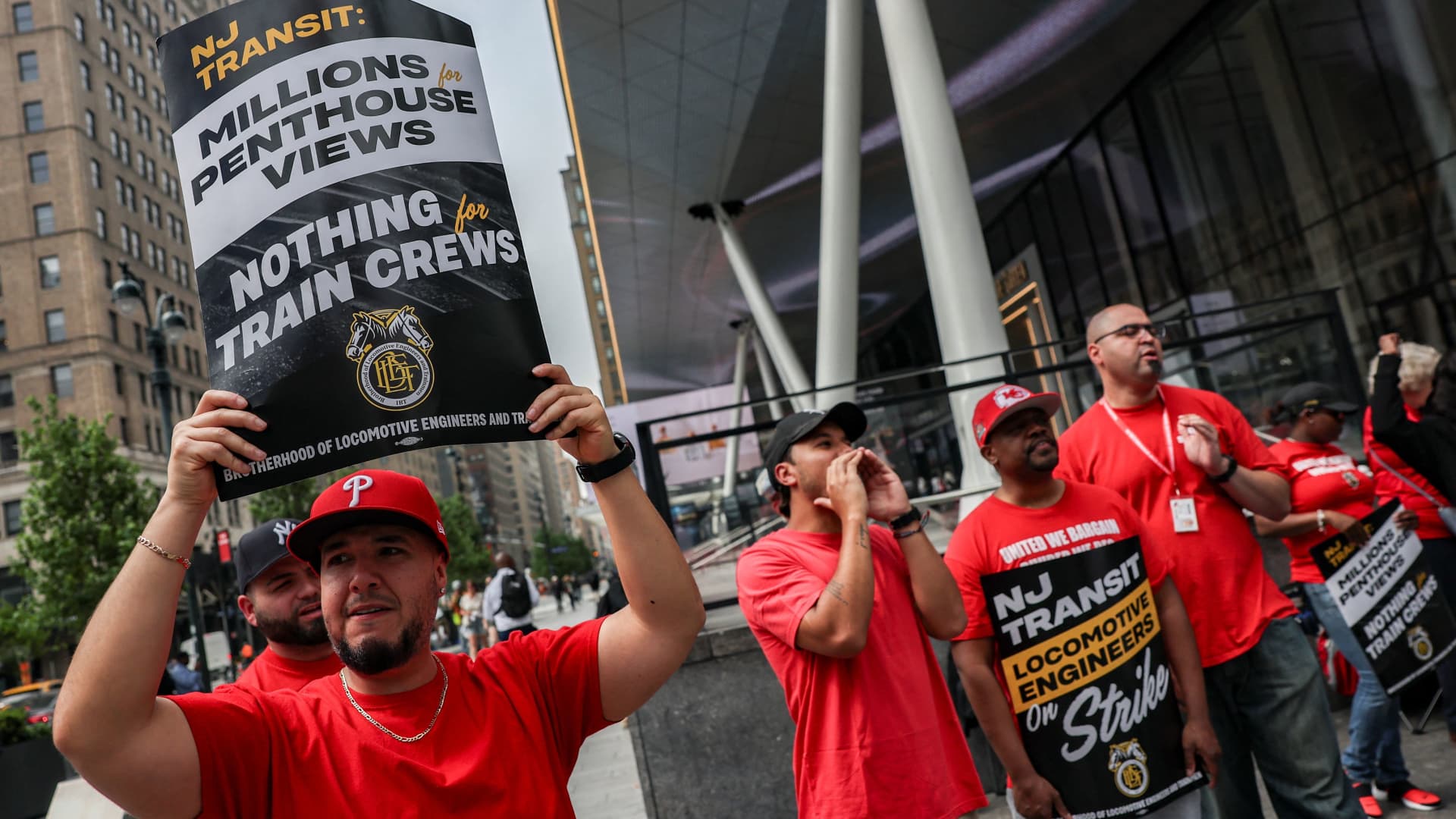The New Jersey Transit rail strike will end after the Brotherhood of Locomotive Engineers and Trainmen and NJ Transit managers reached a tentative agreement Sunday.
Trains will resume running on their regular schedules Tuesday, NJ Transit President and CEO Kris Kolluri said, ending the first strike at NJ Transit in over 40 years.
Kolluri urged commuters to work from home Monday until full service picks up again Tuesday. NJ Transit buses will run as normal Monday.
Kolluri said the company has a lot to do to ready the railway for safe passage after no use, including checking the railroads, pre-positioning equipment, conducting safety inspections and calling engineers back into work.
“This is an extraordinarily complex operation,” Kolluri said. “We will never compromise the safety of our riders. For us, it is better to get it right and do it methodically than to rush and try to meet some artificial deadline.”
New Jersey Gov. Phil Murphy lauded transit managers’ efforts at the negotiating table, saying he thought the deal “landed in a really good place.”
“They have poured hour after countless hour into reaching an agreement that is both fair to NJ Transit’s employees while also being affordable for our state’s commuters and taxpayers,” he said at a news conference Sunday evening.
The locomotive union said the strike, which began at 12:01 a.m. Friday, was a result of pay disputes, as 450 of its members who work for NJ Transit walked off the job. It brought the country’s third-largest transit system, which services 350,000 riders, to a halt.
It shut down NJ Transit trains, which carry around 100,000 riders each day.
Talks between the union and NJ Transit officials had continued through the weekend. The terms of the deal will now be sent to the 450 union members who work for the company. A ratification vote by the union and by NJ Transit is expected to follow, the union said.
Tom Haas, the union’s general chairman at NJ Transit, said the agreement would boost hourly pay higher than the April proposal by NJ Transit, which the union rejected, and higher still than where the proposal had stood Thursday night.
The union has said its members were the lowest-paid locomotive engineers at any major passenger railroad in the country. It said NJ Transit engineers haven’t had raises in the last five years.
“We’re just looking for some sort of equal pay for equal work,” a striking locomotive engineer, who would not give NBC News his name under the union’s rules, said Friday. The man said Amtrak and the Long Island Railroad pay around $10 an hour more.
Murphy said the offer to the union before the strike was pay similar to that of engineers for the Long Island Railroad.
Mark Wallace, the locomotive union’s national president, said the union had “the full support of our national union, as well as the Teamsters.”
“We also appreciated the outpouring of support we received from NJ Transit passengers and the labor community who know that NJ Transit’s locomotive engineers keep the trains moving and went years without a raise,” Wallace said.
He also thanked Congress for not interfering with the strike, which it is able to do under the Railway Labor Act.
“This should be a lesson for other railroad disputes. Nothing would have been gained by kicking the can down the road. Allowing strikes to happen encourages settlement rather than stonewalling,” Wallace added.
Late Thursday, before the strike deadline, Murphy and Kolluri said they wanted a fair agreement for the union but added that they couldn’t agree to a deal that might have been better than those of other unions in the NJ Transit system, because it would cause those unions to demand the same.
“It turns from something that is maybe a single-digit million or a low double-digit million fiscal reality into a nine-digit fiscal reality — and that’s something that NJ Transit can’t bear,” Murphy said at the time.





